Political Integration and Identity
Research:Seminars/Workshops
GIARI "Political Integration and Identity" Seminar: "China's Rise and Maritime Concerns in East Asian Waters: A Perspective from ASEAN" (Dr. Carolina G. Hernadez)
2010.11.02
Information
- Lecturer: Dr. Carolina G. Hernandez
- Dr. Carolina G. Hernandez is Professor Emeritus in Political Science at the University of the Philippines (Diliman), Founding President and Chair of the Board of Directors, Institute for Strategic and Development Studies, Inc. (ISDS Philippines), and ASEAN Co-Chair of the CSCAP Steering Committee. One of the region's leading 'track two' leaders, she participated in the establishment of the ASEAN Institutes of Strategic and International Studies (ASEAN ISIS), Council for Security Cooperation in the Asia Pacific (CSCAP), and the Council for Asia-Europe Cooperation (CAEC). She is a member of numerous international advisory bodies and networks, including the United Nations Secretary-General's Advisory Board on Disarmament Matters (ABDM) which she chaired in 2009 (2005-2010), the Global Consortium on Security Transformation (GCST since 2008), the Global Center on the "Responsibility to Protect (GCR2P 2010-2011), Network of Global Agenda Councils of the World Economic Forum (since its establishment in 2008), Asia-Pacific Security Forum (APSF since its establishment in 1997), and the Human Rights Resource Center of ASEAN (HRRCA since its establishment in 2009).
- Date: 2 November (Tuesday), 2010
- Time: 13:00-14:30
- Venue: Room 711, Building 19, GSAPS
- Commentator: Dr. Sato Koichi, J. F. Oberlin University
- Moderator: Hirakawa Sachiko, Assistant Professor, Waseda University
- Organized by: GIARI (Global Institute for Asian Regional Integration, Waseda University Global COE Program)
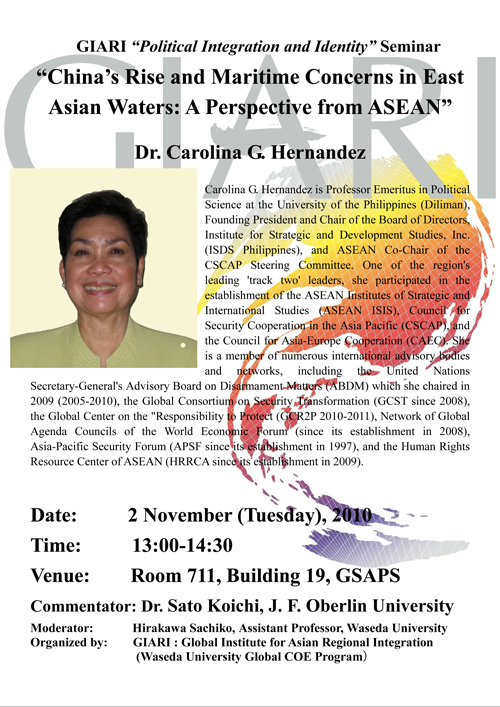
Photos
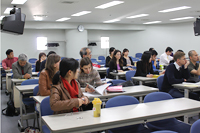
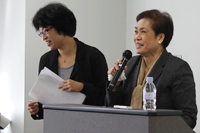

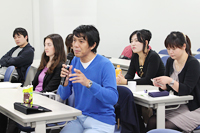
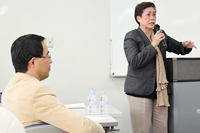

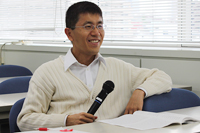
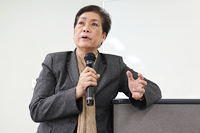

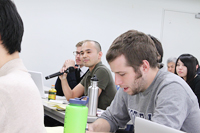
summary
A PERSPECTIVE FROM ASEAN
Carolina G. Hernandez, PhD
Professor Emeritus
University of the Philippines
Dr. Hernandez mostly talked about the rise of China which is a regional and global phenomenon, driving the perception that a shift in the locus of power has shifted from the West to East Asia. The relative decline of power and influence of the United States and Japan`s experiences of economic decline and domestic political problems were accompanied by China`s increased international status as the world’s second largest economy. She considers that China’s rise enabled its military to achieve its modernization goals including the acquisition of a blue water navy that is widely perceived as not defensive due to its forward deployment capability.
Referring to a number of maritime incidents in the EEZ of East Asian states in recent years, Prof. Hernandez indicated to a future that may not be benevolent. Thus, even ASEAN member states that have benefited from closer economic ties to China such as Vietnam have begun to consider the politico-strategic dimensions of these relations. Therefore, these have important implications for regional security since the best regional strategic scenario is for all the relevant major powers that have either a presence or huge interests in East Asia to have stable domestic environments in all the relevant dimensions – political, economic, social etc. This also means that China’s rise remains benign and not anti status quo; Japan to re emerge as a powerful economic and regional actor, South Korea to remain peaceful and stable, with the North being reined in by its strategic partners, and for the US to remain a strong and influential global player.
Dr. Hernandez thinks China needs peace and stability to continue rising, but it may not need this environment if it has risen already. In this regard, some indications of its likely behavior once already risen can be found in its overall behavior during its decades of economic, diplomatic, military and political rise. Its bottom line in its foreign and security policy behavior has been the pre-eminence of national sovereignty and national territory seen in its behavior regarding Taiwan and Tibet, for example.
After her lecture, Prof. Sato Koichi of J. F. Oberlin University stimulated the session with related examples of a number of maritime incidents and his own opinion about China’s strategy. Following, there was a discussion session where students and professors asked broader and extensive questions regarding her lecture, including Philippine’s political situation and human right issues.
